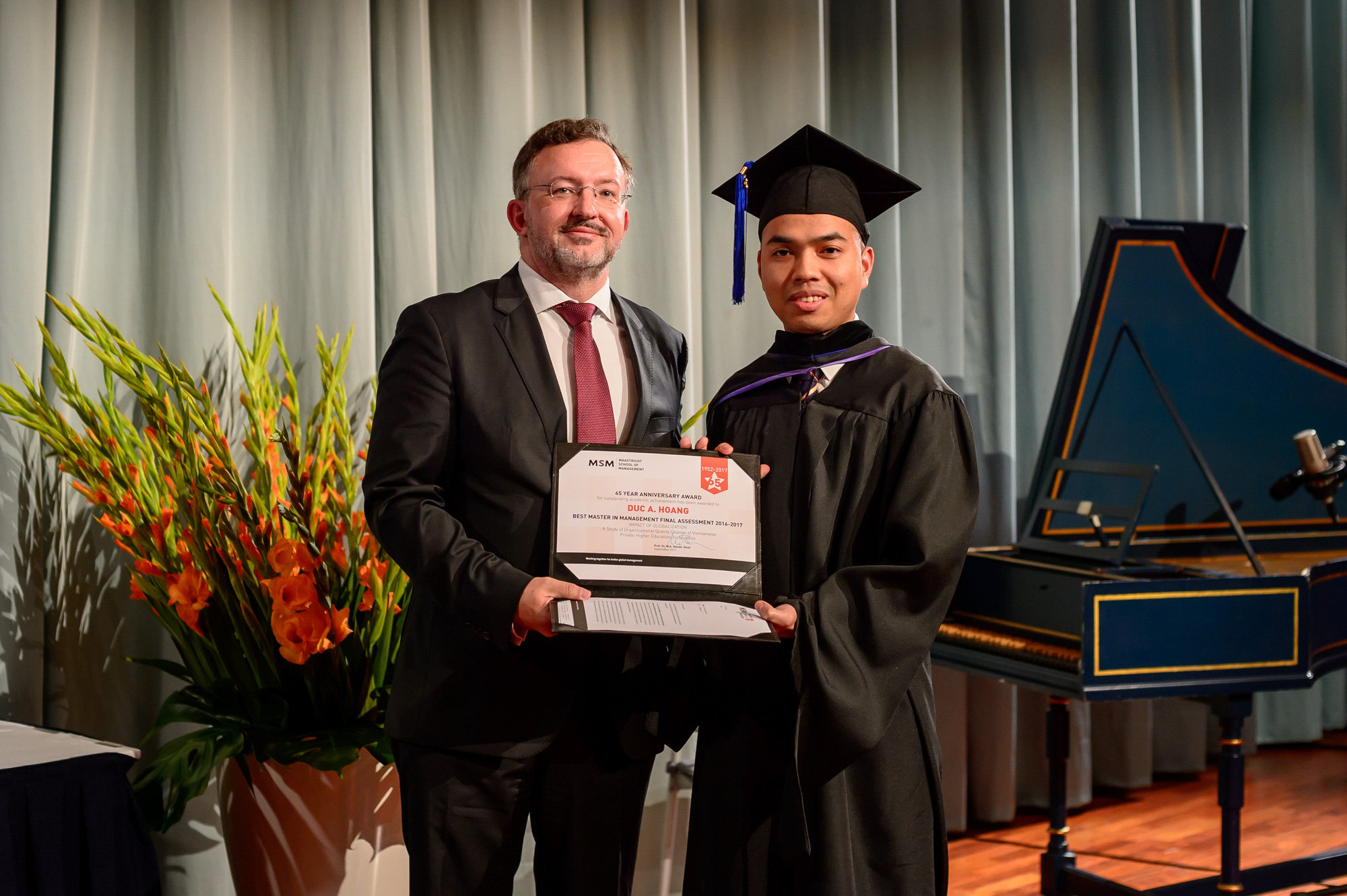At 30, Hoang Anh Duc is laser-focused on developing his country’s education sector.
Duc graduated as a valedictorian from the Maastricht School of Management (MSM) in the Netherlands.
He was listed among 30 talented young Vietnamese on the Forbes 30 Under 30 Vietnam list of 2020 thanks to the waves he is making in Vietnam’s education sector.
Life-long learner
Duc works to achieve his vision for education in Vietnam through his role as CEO for EdLab Asia, a non-profit education hub that focuses on administrative consultancy, school improvement, curriculum design, and teacher training courses.
“EdLab Asia was started with the aim of becoming a center for educational studies and application, operating under the business model of a social enterprise,” Duc explained.
EdLab Asia’s consultancy work is primarily targeted at private schools. The profits from such work are then used to finance endeavors geared toward supporting the nationwide community of educators.
Though Duc has successfully elevated several education institutions, his own educational journey was a bumpy road and, by his own admission, his outlook on his own studies involved simply meeting the lowest benchmarks needed to graduate.
“The only forms of studying that interested me were learning via newspapers, virtual lessons, and field experiences. Such things deeply inspired me and helped me become aware of the importance of life-long learning and essential skills in the new era,” Duc said.
Duc’s view on education has evolved over the years to encompass the important role passion and discipline play in an individual’s life-long learning.
He sees the mobilization of passionate, disciplined individuals as the key to improving the state of education in Vietnam.
“It is critical for each individual to develop a capacity to learn by themselves in order to find their life path,” Duc said, adding that knowledge is a primary element of organizational problem-solving.
“Individuals can contribute to the learning capacity of organizations, institutions, and the country as a whole."
Tapping potential
Doing research on educational development for the last few years has led Duc to reckon that it is each individual’s personal mindset that remains the biggest obstacle in their obtainment of new knowledge.
“The simplest but also most challenging thing for individuals to do is to recognize their own failures and overcome their personal experiences to accept opinions that are different from their own,” Duc said, adding that education is a meaningful path that helps a person build their own critical thinking while maintaining openness, independence, and collaboration.
Given this perspective, EdLab’s educational philosophy is primarily geared toward creative and critical thinking.
The center’s practical activities are all based on the foundation of social science research, including educational science and psychology.
More than money
Apart from its advisory operations, EdLab also publishes the online magazine Day va Hoc (Teaching and Learning), a free resource for educators that doubles as an opportunity for Edlab to obtain constructive feedback.
Currently, translated content accounts for about 80 percent of the site, but in the long run, EdLab hopes to gradually increase the number of original articles sharing practical experience in Vietnam in order to better relate to its Vietnamese audience.
Day va Hoc has been publishing two issues of about 40 pages each month for the past two years.
Features in the magazine are written by experts and educational managers from Vietnam and abroad.
Each of the 25 issues published has garnered between 10,000 and 11,000 views on the platform.
Even with its successes, Duc said EdLab still faces many hurdles, particularly personnel optimization.
“It took us between six months and a year to train a capable researcher. It’s difficult for them to strike a balance between research and improving administrative skills, which affects our ability to expand projects,” he said.
EdLab is financed by its consultancy operations and sponsors. Duc’s team has raised funds for some projects but not Day va Hoc, as they want to maintain the magazine’s independence and integrity.
“We have received numerous offers of lucrative sponsorship deals for Day va Hoc over the last two years but we have rejected them altogether or suggested that the sponsorship be publicly announced [to readers] or implied in articles,” Duc said.
“We believe that in education there’s no room to make compromises for money."
Like us on Facebook or follow us on Twitter to get the latest news about Vietnam!


















































